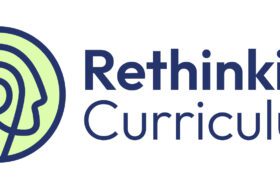In this webinar chaired by Professor Dame Alison Peacock (Chief Executive, Chartered College of Teaching), we heard from Gareth Conyard (Deputy Director, Department for Education) and Frances Blurton (Assistant Director, Department for Education) who provided information regarding the roll out of the Early Career Framework.
Suggested resources: Download the audio transcript
Download the slides
Book onto #ECFEST21 the online festival for early career teachers
Order your copy of The Early Career Framework Handbook
Visit our member discounts page for a discount on SAGE titles
Explore our reading list of useful links, resources and guidance on the Early Career Framework
Visit our Early Career Hub - an online resource for NQTs shaped around the ECF
‘Maximum benefit in a straightforward way’: an Early Career Framework induction
Statutory guidance: Induction for early career teachers (England) Questions from the event:
Q1: Guidance says automatic extensio
Join us or sign in now to view the rest of this page
You're viewing this site as a guest, which only allows you to view a limited amount of content.
To view this page and get access to all our resources, join the Chartered College of Teaching (it's free for trainee teachers and half price for ECTs) or log in if you're already a member.





